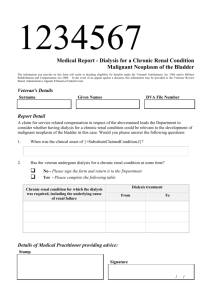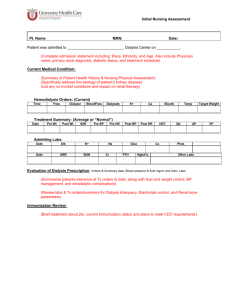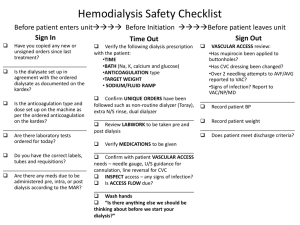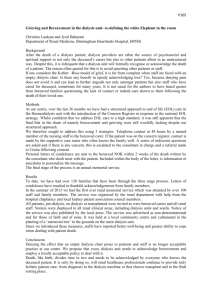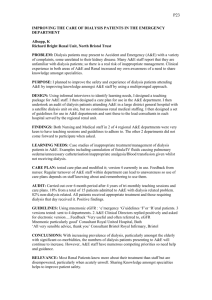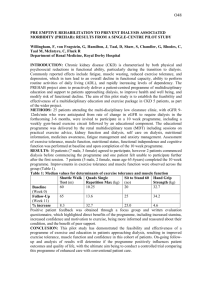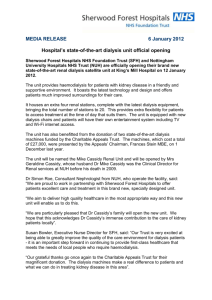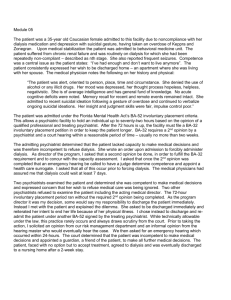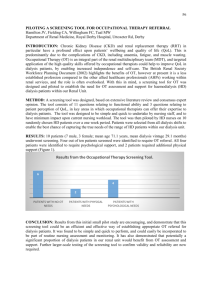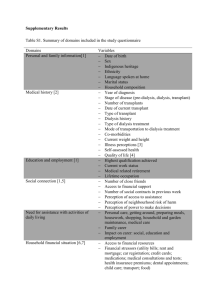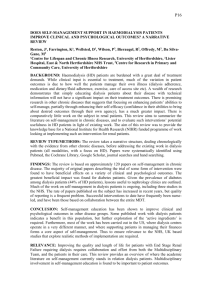National Renal Advisory Board letter
advertisement
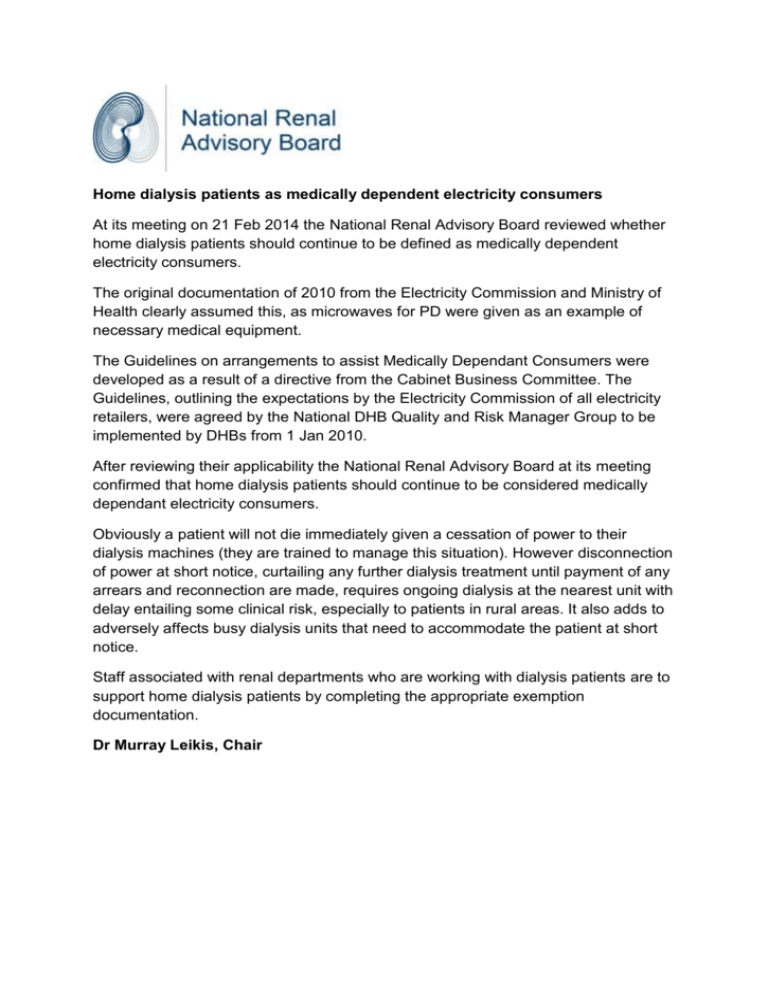
Home dialysis patients as medically dependent electricity consumers At its meeting on 21 Feb 2014 the National Renal Advisory Board reviewed whether home dialysis patients should continue to be defined as medically dependent electricity consumers. The original documentation of 2010 from the Electricity Commission and Ministry of Health clearly assumed this, as microwaves for PD were given as an example of necessary medical equipment. The Guidelines on arrangements to assist Medically Dependant Consumers were developed as a result of a directive from the Cabinet Business Committee. The Guidelines, outlining the expectations by the Electricity Commission of all electricity retailers, were agreed by the National DHB Quality and Risk Manager Group to be implemented by DHBs from 1 Jan 2010. After reviewing their applicability the National Renal Advisory Board at its meeting confirmed that home dialysis patients should continue to be considered medically dependant electricity consumers. Obviously a patient will not die immediately given a cessation of power to their dialysis machines (they are trained to manage this situation). However disconnection of power at short notice, curtailing any further dialysis treatment until payment of any arrears and reconnection are made, requires ongoing dialysis at the nearest unit with delay entailing some clinical risk, especially to patients in rural areas. It also adds to adversely affects busy dialysis units that need to accommodate the patient at short notice. Staff associated with renal departments who are working with dialysis patients are to support home dialysis patients by completing the appropriate exemption documentation. Dr Murray Leikis, Chair
